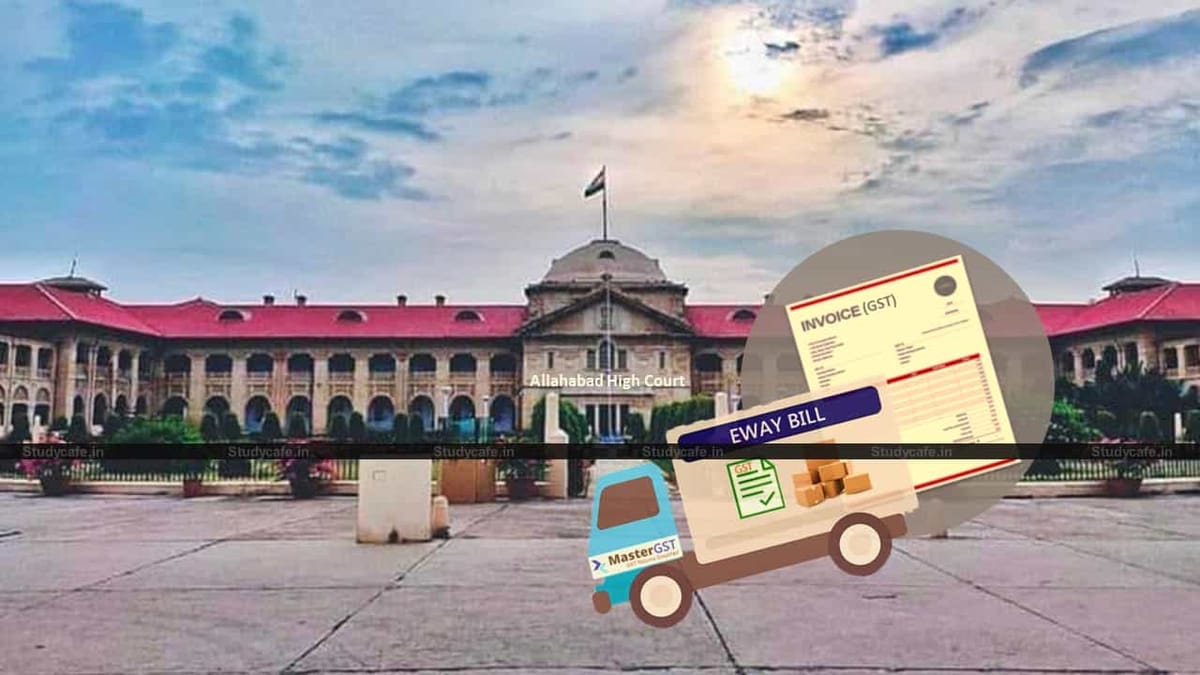CA Bimal Jain | Mar 31, 2021 |

Tax demand order alleging e-way bill reuse quashed by HC and termed it as perverse and erroneous
The Hon’ble Allahabad High Court in M/s. Anandeshwar Traders v. State of UP [Writ Tax No. 503 of 2020 decided on January 18, 2021] held that the order demanding tax and penalty passed by Revenue under Section 129(3) of the Central Goods and Services Tax Act, 2017(“CGST Act”) is contrary to the provisions of the law and is perverse and erroneous on the basis that the Revenue had not recorded any reason to establish evasion of tax or attempt to evade tax or reuse of the e-way bill.
M/s. Anandeshwar Traders (“the Petitioner”) is a trader is Pan Masala and other goods. The Petitioner claimed to have sold disputed goods to a dealer against its tax invoices dated November 24, 2019. Two e-way bills were also prepared on November 24, 2019 and Bilty of the carrier were also prepared for transportation of those goods.
The goods in question along with the two tax invoices, e-way bills and two bilty were found with the goods on November 28, 2019 when the same were intercepted by the revenue authorities. At the stage of seizure i.e., when the order under Section 129(1) of the CGST Act was passed alleging the reuse of the aforesaid e-way bills.
However, the Assistant Commissioner in its order dated December 3, 2019 imposed the tax and penalty amounting to Rs. 29,76,110/- and no findings were recorded to that effect.
Aggrieved by the above order, the Petitioner appealed against the same and the same was dismissed vide order dated June 22, 2020 by Additional Commissioner Grade-2 (Appeal)-5, Commercial Tax, Kanpur (“Appeal authority”).
It is to be noted that Appeal authority relied on some additional evidence produced by revenue authority and further, relied on Rule 138(9) of the Central Goods and Services Tax Rules, 2017 (“CGST Rules”), to state that since the goods were not being transported immediately upon preparation of the e-way bills on November 24, 2019 the same should have been cancelled. It has been inferred that the said e-way bills had been reused.
A writ petition was filed by the Petitioner against the order dated December 3, 2019 in the High Court.
The Hon’ble Allahabad High Court in Writ Tax No. 503 of 2020 decided on January 18, 2021 held as under:
Section 129(3) of the CGST Act:
“(3) The proper officer detaining or seizing goods or conveyances shall issue a notice specifying the tax and penalty payable and thereafter, pass an order for payment of tax and penalty under clause (a) or clause (b) or clause (c).”
Rule 138(9) of the CGST Rules:
“(9) Where an e-way bill has been generated under this rule, but goods are either not transported or are not transported as per the details furnished in the e-way bill, the e-way bill may be cancelled electronically on the common portal within twenty four hours of generation of the e-way bill:
Provided that an e-way bill cannot be cancelled if it has been verified in transit in accordance with the provisions of rule 138B:
Provided further that the unique number generated under sub-rule (1) shall be valid for a period of fifteen days for updation of Part B of FORM GST EWB-01.”
DISCLAIMER: The views expressed are strictly of the author and A2Z Taxcorp LLP. The contents of this article are solely for informational purpose. It does not constitute professional advice or recommendation of firm. Neither the author nor firm and its affiliates accepts any liabilities for any loss or damage of any kind arising out of any information in this article nor for any actions taken in reliance thereon.
In case of any Doubt regarding Membership you can mail us at contact@studycafe.in
Join Studycafe's WhatsApp Group or Telegram Channel for Latest Updates on Government Job, Sarkari Naukri, Private Jobs, Income Tax, GST, Companies Act, Judgements and CA, CS, ICWA, and MUCH MORE!"